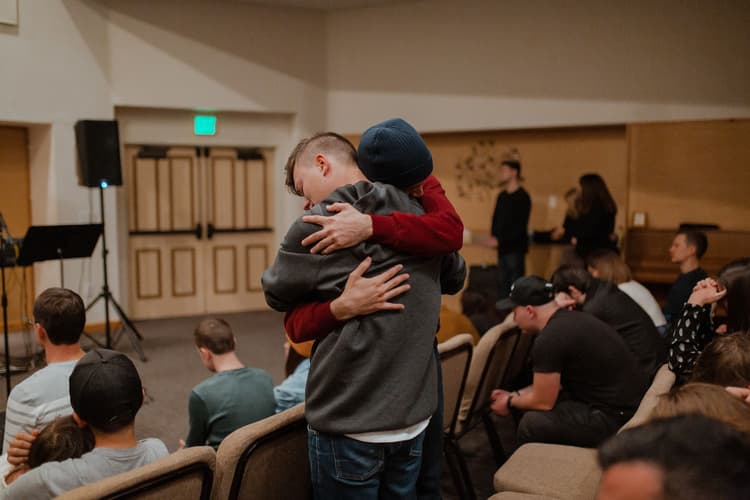Untangling Emotions: Understanding Stress, Fear, and Anxiety

Meetelp
2023/06/29
3 мин чтения
Тревога
Страхи и фобии
Стресс
Панические атаки
Выгорание
Every person has a different way of expressing their feelings. Some say "I'm stressed," others exclaim "I'm anxious," and some even mention "I'm in fear." However, there's some confusion as to what these expressions genuinely mean. Are stress, fear, and anxiety interchangeable? Or do they signify unique emotional states? Let's delve deeper into these terms to help clarify what we're truly feeling when we say these words.
Stress: The Mental Pressure
When we say "I feel stressed out," what we're really talking about is an immediate reaction to a challenging situation. Stress is often related to external circumstances, like work deadlines, family issues, or significant life changes. It's our body's way of responding to demands or threats, triggering a "fight or flight" response.
Common signs of stress include headaches, upset stomach, elevated heart rate, or feeling overwhelmed, irritable, or anxious. However, once the situation has passed, so does the stress.
Fear: A Direct Response to Danger
On the other hand, when people say, "I am feared," they might be trying to express they're feeling afraid. Fear is a direct, focused response to a perceived immediate threat. It ignites our survival instincts, readying us to either fight the danger or run away.
Fear can bring physical symptoms similar to stress, such as sweating, increased heart rate, and rapid breathing. The distinction here is that fear is a response to a known or understood threat, whereas stress can arise from any demand or pressure.
Anxiety: The Unseen Fears
When we express "I feel anxious," we're typically pointing to a more complex emotional state. Anxiety is a bit like fear's big brother – but instead of being linked to an immediate, identifiable threat, it's often related to something that's not happening right now but could potentially happen in the future. It's more about anticipation of the unknown, the what-ifs, and worst-case scenarios.
Symptoms of anxiety can be both physical and psychological, including restlessness, increased heart rate, trouble concentrating, and a sense of impending doom or danger. Unlike stress and fear, anxiety can persist long after the situation that triggered it has passed, which can lead to anxiety disorders if not managed properly.
So, What's the Difference?
While stress, fear, and anxiety can feel similar, they stem from different places. Stress is a response to a pressing situation. Fear is a reaction to a known threat. Anxiety is a response to a perceived future threat (a person's interpretation of the situation rather than an actual danger).
Here are some examples of phrases people might say when they're feeling stressed, afraid, or anxious:
Stress
- "I feel like I'm being pulled in a million different directions."
- "There just aren't enough hours in the day."
- "I have so much on my plate right now, I don't even know where to start."
- "I'm just so overwhelmed."
- "I feel like I can't catch a break."
Fear
- "I can't do it; something bad will happen."
- "I can't go there; it's not safe."
- "I feel like I'm in danger."
- "I'm really scared about this."
- "I can't shake this feeling of dread."
Anxiety
- "I can't stop worrying about what might happen."
- "I have this constant feeling of unease."
- "I can't help but think of the worst-case scenario."
- "What if I mess up?"
- "I feel like something bad is going to happen, but I don't know what."
Understanding these differences can help us manage these emotions better. However, if you are feeling persistently stressed, fearful, or anxious, it's essential to reach out to a therapist who can provide guidance and support. In those challenging moments, the Meetelp app can be an excellent resource. Experienced therapists are ready to help you navigate your emotions and boost your empathy towards others, giving you insights into what they may be experiencing.
Читать дальше

How to Motivate Yourself to Study When You Lack Energy and Motivation
Meetelp
2024/01/22
This article is for those who feel the weight of their textbooks on their shoulders, who spend hours studying but still struggle to find the motivation and energy to keep going. Meetelp therapists can assist in structuring your thoughts, relieving the extra burden from your shoulders, and providing strategies for managing stress and anxiety.

Do New Year's Resolutions Really Matter?
Meetelp
2024/01/05
Why do we forget our resolutions and how to make resolutions work for you with Meetelp.

Understanding the Difference Between Compassion, Self-Compassion, Sympathy, and Empathy
Meetelp
2023/12/07
The festive season of Christmas, with its lights and cheer, often brings deeper reflections on our emotional connections with others and ourselves.